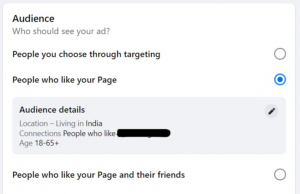There are still many questions to be answered about the events landscape post-COVID.
We’re all still trying to work out virtual events, as well as looking forward to next year when the COVID vaccine might ultimately herald a return of in-person engagement, perhaps in tandem with virtual content. Everyone has an opinion, not least Ben Hindman, CEO at event marketing platform Splash.
Earlier this month, he raised some hackles on LinkedIn by predicting that COVID would break the addiction to massive events, and that the shift to “bite size” is underway. Splash followed up Hindman’s opinion piece with some supporting data in their report “Online, Shorter, and Here to Stay: An Outlook on Virtual and Hybrid Events in 2021.”
Here’s the data. Based on a survey of 270 U.S. events professionals, and over 3,000 attendees from various industries, Splash reported, among other things, that:
- 43% of companies moved all events to virtual and are hosting more virtual events than originally planned;
- 79% of companies now expect to host events that include an online component even once in-person events resume; and
- Fewer than 7% of event attendees believe virtual events should be longer than an hour.
That last message seemed already to have reached the ears of Salesforce, with the drastic restructuring of this year’s Dreamforce as a long series of short sessions.
We caught up with Splash’s Chief Revenue Officer Eric Holmen to dive deeper into the findings. “The future seems to be changing day by day,” he said. “We have a very active user group globally, and what we’ve heard from them is that the nature and definition of events is changing in pretty fundamental ways. COVID may have accelerated the digital transformation of events by five years.”
Because so much of event planning and management had traditionally taken place offline, and because much value at events had been derived from face-to-face contacts — by definition not digital — the digital transformation of events had been lagging pre-pandemic. “When you suddenly need to take everything online, you start to apply some rigor.”
The question of scale. The report includes some data which seems to underline the value of smaller, shorter events, with almost twice the attendance rate at events with fewer than 10 RSVPs as at event with 100-plus RSVPs, and 55% of respondents believing that virtual events should last 30 minutes or less.
“There’s going to be a place for the big events,” said Holmen. Splash, after all, does support both large and small events. “But it’s when big events have small moments that they have the most value; when you’re able to have a special VIP session or dinner, not when you have these big rooms full of people. They’re okay, they’re good for learning, but that super-niche experience within the big event is where most of the value comes from.” It’s possible to have that kind of super-niche experience, and have it be engaging and interactive, without having to travel halfway across the country, Holmen observed.
Holmen also wonders about the future of webinars, which of course are essentially online seminars. “Virtual events can have some chat, some interesting experiences, some engagement, and I think that’s why a virtual event is different from a webinar. I question both the big events and the webinars: are they going to survive in the same way a year from now?”
Certainly, lengthy online events test the audience’s attention span. “Try to keep your sessions down to 20 minute or less if you can, and if you have a really big keynote then you’ve got to go the extra mile to make it extra special.”
The hybrid future. “The lifecycle went from in-person events, to webinars, to virtual events that slowly improved, and the next chapter is — how do we do these hybrid things, when we can return to in-person, but have a really interesting digital experience?”
Hybrid means different things to different people: we asked him for his perspective. “We, along with others, are trying to fix a definition around hybrid. By default, we imagine hybrid as a live event which is also being streamed — which has been happening in the past. I think that’s going to continue, but it’s more like a telecast version of a live event. The ideal hybrid event combines some digital interactions, along with optional in-real-life.” Some clients, said Holmen, envision a virtual package, plus an in-person event, on the same topic, but probably not running at the same time — “They feed off each other,” he said.
Why we care. The Splash report characterizes the events landscape as “resilient, but unrecognizable from a year ago” — which is almost an understatement. The future may be uncertain, but there will certainly be a future. We’re all trying to figure out what it will look like.
This story first appeared on MarTech Today.
https://martechtoday.com/one-view-of-the-future-of-events-niche-and-hybrid-245768
Opinions expressed in this article are those of the guest author and not necessarily Marketing Land. Staff authors are listed here.
Marketing Land – Internet Marketing News, Strategies & Tips
(17)





